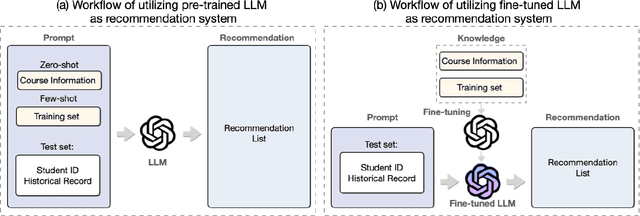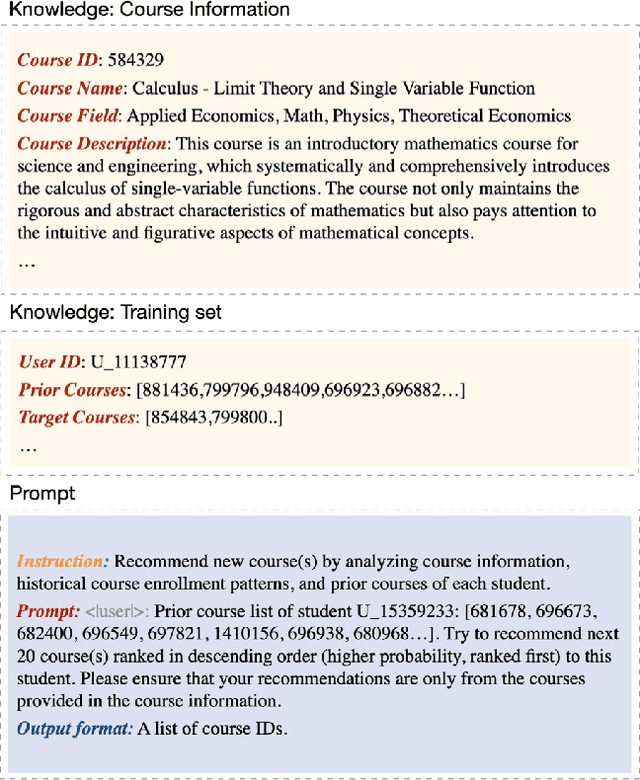Shin'ichi Konomi
Scaffolding Metacognition in Programming Education: Understanding Student-AI Interactions and Design Implications
Nov 06, 2025Abstract:Generative AI tools such as ChatGPT now provide novice programmers with unprecedented access to instant, personalized support. While this holds clear promise, their influence on students' metacognitive processes remains underexplored. Existing work has largely focused on correctness and usability, with limited attention to whether and how students' use of AI assistants supports or bypasses key metacognitive processes. This study addresses that gap by analyzing student-AI interactions through a metacognitive lens in university-level programming courses. We examined more than 10,000 dialogue logs collected over three years, complemented by surveys of students and educators. Our analysis focused on how prompts and responses aligned with metacognitive phases and strategies. Synthesizing these findings across data sources, we distill design considerations for AI-powered coding assistants that aim to support rather than supplant metacognitive engagement. Our findings provide guidance for developing educational AI tools that strengthen students' learning processes in programming education.
How Good Are Large Language Models for Course Recommendation in MOOCs?
Apr 11, 2025



Abstract:Large Language Models (LLMs) have made significant strides in natural language processing and are increasingly being integrated into recommendation systems. However, their potential in educational recommendation systems has yet to be fully explored. This paper investigates the use of LLMs as a general-purpose recommendation model, leveraging their vast knowledge derived from large-scale corpora for course recommendation tasks. We explore a variety of approaches, ranging from prompt-based methods to more advanced fine-tuning techniques, and compare their performance against traditional recommendation models. Extensive experiments were conducted on a real-world MOOC dataset, evaluating using LLMs as course recommendation systems across key dimensions such as accuracy, diversity, and novelty. Our results demonstrate that LLMs can achieve good performance comparable to traditional models, highlighting their potential to enhance educational recommendation systems. These findings pave the way for further exploration and development of LLM-based approaches in the context of educational recommendations.
Leveraging the Dynamics of Leadership in Group Recommendation Systems
Mar 17, 2025



Abstract:In the field of group recommendation systems (GRS), effectively addressing the diverse preferences of group members poses a significant challenge. Traditional GRS approaches often aggregate individual preferences into a collective group preference to generate recommendations, which may overlook the intricate interactions between group members. We introduce a novel approach to group recommendation, with a specific focus on small groups sharing common interests. In particular, we present a web-based restaurant recommendation system that enhances user satisfaction by modeling mutual interactions among group members. Drawing inspiration from group decision-making literature and leveraging graph theory, we propose a recommendation algorithm that emphasizes the dynamics of relationships and trust within the group. By representing group members as nodes and their interactions as directed edges, the algorithm captures pairwise relationships to foster consensus and improve the alignment of recommendations with group preferences. This interaction-focused framework ultimately seeks to enhance overall group satisfaction with the recommended choices.
Enhancing Programming Education with ChatGPT: A Case Study on Student Perceptions and Interactions in a Python Course
Mar 27, 2024Abstract:The integration of ChatGPT as a supportive tool in education, notably in programming courses, addresses the unique challenges of programming education by providing assistance with debugging, code generation, and explanations. Despite existing research validating ChatGPT's effectiveness, its application in university-level programming education and a detailed understanding of student interactions and perspectives remain limited. This paper explores ChatGPT's impact on learning in a Python programming course tailored for first-year students over eight weeks. By analyzing responses from surveys, open-ended questions, and student-ChatGPT dialog data, we aim to provide a comprehensive view of ChatGPT's utility and identify both its advantages and limitations as perceived by students. Our study uncovers a generally positive reception toward ChatGPT and offers insights into its role in enhancing the programming education experience. These findings contribute to the broader discourse on AI's potential in education, suggesting paths for future research and application.
 Add to Chrome
Add to Chrome Add to Firefox
Add to Firefox Add to Edge
Add to Edge